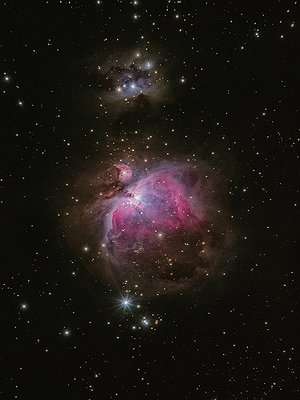
Автор: David Alejandro Villa Stopelli
Preface
Ever since we are little kids, it has always been amazing to look up to the night sky, stare at the stars and wonder what’s up there deep in space, and ask ourselves plenty of interesting questions about something we all are part of, and yet not completely understand.
Allow me to introduce myself, as I find myself among those people who have always been asking the question: “¿What if…?”; my name is David Alejandro Villa Stopelli, a long-term S.T.E.A.M passionate, dreamer and doer. My dream has always been to be part of scientific research and evolution, even though at first I was pretty bad at math and science, later on, I started to catch up more and that has led me to study aeronautical engineering at college in Mexico City. So before starting, dear reader, making a change will take only our enthusiasm for learning and improvement. Quoting Socrates:
“The only true wisdom is in knowing you know nothing”
Introduction
The purpose of this research is to make the reader aware of the importance of aiming to the stars and beyond to become a multiplanetary species for humanity’s growth and evolution, putting in actions now for the future of the human race among the stars. Giving a forecast of multi-planetary life by 2100.
Main Part
Humanity’s development has been increasing exponentially from the moment in which men met their needs and desires: we have faced a high evolving rate in social, scientific and technological environments. We came into the 20th century using two and four-cycle automobiles, in 1957 we sent the very first satellite to space and 12 years later we sent the first men to the moon.
Quantum mechanics tells us that there is not a single answer, but multiple answers each with a certain probability. Given all this scientific progress across the years, ¿what could be the options for humanity?
We may consider two fundamental paths: one path is staying on Earth forever and eventually face extinction sometime in the future still unknown, or path two in which we become a space-bearing civilization and a multi-planetary species.
Now we should wonder where to establish as our options within the solar systems are limited; as in terms of nearby options we got Venus and Mars, but the atmosphere of Venus is very hostile because of its super high pressure and temperature, it would be difficult to set up in Venus. Then, we got Mercury, but its surface is too high in temperature and lacks of atmosphere. Some other possible places, such as the moons of Jupiter or Saturn as their conditions are easier to work on, but they are still much further from the sun and from us.
So it leaves us with one option for instance to expand civilization, that’s on Mars, where the conditions are very much alike to those on our home planet Earth: a day in Mars lasts 24.5 hrs and its gravity is 3,72 m/s2 about 38% of that on Earth, which means we could lift of heavier stuff, making work way easier.
- Social Impact of becoming multi-planetary
As in the times of Apollo missions, there had been lot of controversy as why should we be spending money and time on space if we still have problems yet to solve on earth, but space can provide us way more resources to share on Earth
Becoming a multi-planetary species could protect the future of the human race and help humanity reach its full potential; it will create new hubs of innovation and experimentation, leading to advances in our society, commerce, technology and science, allowing us to prove or disprove scientific theories developed on earth.
And, we should always be thinking morally as we should not leave our home planet left behind, becoming multiplanetary could also provide us the resources to help protect Earth and all its people.
- ¿How to do so?
We now believe that early Mars was a lot like Earth, having liquid water on its surface and a suitable atmosphere. So there are two main ways that we could make this work:
- Terraforming Mars by warming it up and thick its atmosphere
- Building entire colonies and cities across the martian surface, making them a safe controlled place for humans, which is a more suitable idea as in terms of time needed, it’s faster than terraforming
Conclusion
One thing is for sure, and that is that the conditions that humanity has encountered are constantly changing, and they do so at an exponential speed rate, nothing remains static and our actions within our planet and in the cosmos will profoundly affect the years to come, and given the advancements we have had so far, I think it’s possible for us to become a multiplanetary species by the year 2100. So I ask, dear reader: ¿What are you willing to do to improve the quality of life and the very future of humanity and the life that accompanies it towards the cosmos?
Always be curious, the future belongs to them. Thanks for reading.
References
Vance, Ashlee(2015). “Elon Musk: SpaceX, Tesla and the Quest for a Fantastic Future”, Ecco.
Hawking, Stephen(2018). “Brief Answers to the Big Questions”.